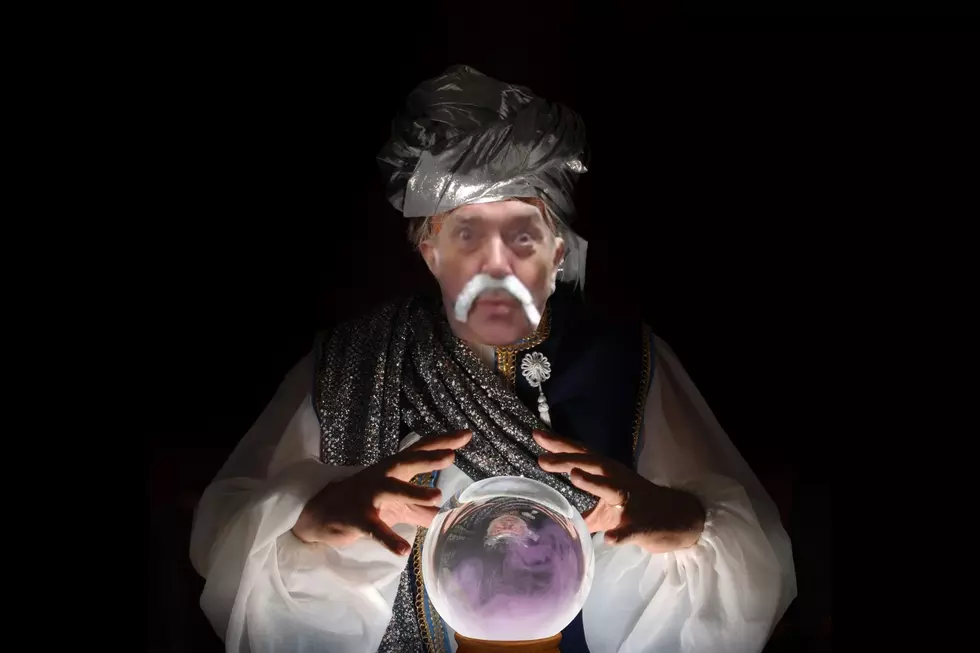
Gaze Into Massachusetts’ ‘Fortune Telling’ Laws
Did you know that fortune tellers in Massachusetts must actually be licensed?
Now, before you go to the next psychic faire and demand every psychic, medium and Tarot reader show you proof of licensure, keep in mind that it is actually up to each individual city or town to license and enforce them. On top of that, some of that licensing has even been challenged in court before, on the basis that the practice of fortune telling is free and protected speech.
According to Massachusetts General Law, Section 185I: “No person shall tell fortunes for money unless a license therefore has been issued by the local licensing authority.” The law also states that the person applying for the license has to have “resided continuously in the city of town in which the license is sought for at least twelve months immediately preceding the date of the application.”
The license must also cost at least $2, but no more than $50.
“Whoever tells fortunes for money unless licensed under this section shall be punished by a fine of not more than one hundred dollars,” the law states.

The City of New Bedford’s licensing board handles applications for fortune telling in the Whaling City. Wareham only recently created its first fortune telling licensing procedure back in 2020, requiring a completed form and a $2 fee. Fall River had a recent applicant in 2019 that would have brought the number of licensed fortune tellers in the city to just four. A cursory web search didn’t turn up any other local communities that had online information about obtaining a fortune telling license in that particular municipality.
The law is unclear on certain things, however. What exactly constitutes “fortune telling?” Is it only psychic predictions of the future? Would things like mediumship (communicating with the dead), psychometry (reading energies attached to inanimate objects) and Tarot card reading be included in that?
Some cities and towns, such as Boston and Cambridge, require you to list the services you will offer and the price of each on the license application. Salem, as well as some other communities, explicitly list all the types of divination included under the license.
None, however, require any type of proof that the fortune teller’s abilities are legitimate, so it’s truly a case of buyer beware.
I know from my many years of working in the paranormal world that there are truly some gifted people who have these abilities, there are those who have some degree of ability but probably don’t know how to properly use it and play up their abilities as more than they are, and then there are those who have no abilities at all and are just trying to scam gullible customers.
The latter are just horrible people that give legitimate practicing psychics and mediums – again, there is such a thing – a bad reputation.
In case you were wondering, yes, there is a law protecting against those who do falsely practice fortune telling. Massachusetts General Law Section 75, “Obtaining property by trick,” specifically points out that “whoever, by a game, device, sleight of hand, pretended fortune telling or by any trick or other means by the use of cards or other implements or instruments, fraudulently obtains from another person property of any description shall be punished as in the case of larceny of property of like value.”
That, of course, must lead to an argument as to what constitutes real fortune telling versus “pretended fortune telling.” A Nebraska case from 1998, Argello v. City of Lincoln, pointed out that the fortune failing to come true does not necessarily indicate fraud. The customer is paying for the reading itself, and that transaction is not contingent on its veracity.
“Nor can the ordinance be upheld as a prohibition against fraud. It does not require that fortune tellers know that they are conveying false information, or that they have no power of seeing into the future,” the decision reads. “For all we know, certain persons genuinely believe that they have such powers. In this belief they may be mistaken, but that is not a decision that government is free to make under our Constitution.”
I predict that, in the future, the explosion of online fortune telling through services like Skype and Zoom will make it less necessary to have brick-and-mortar shops that are licensed by particular communities.
Oh, whoops, maybe I shouldn’t have said “predict.” Now I owe my town $2.
LOOK: What major laws were passed the year you were born?
Celebs Share Their Personal Paranormal Stories
More From WBSM-AM/AM 1420









